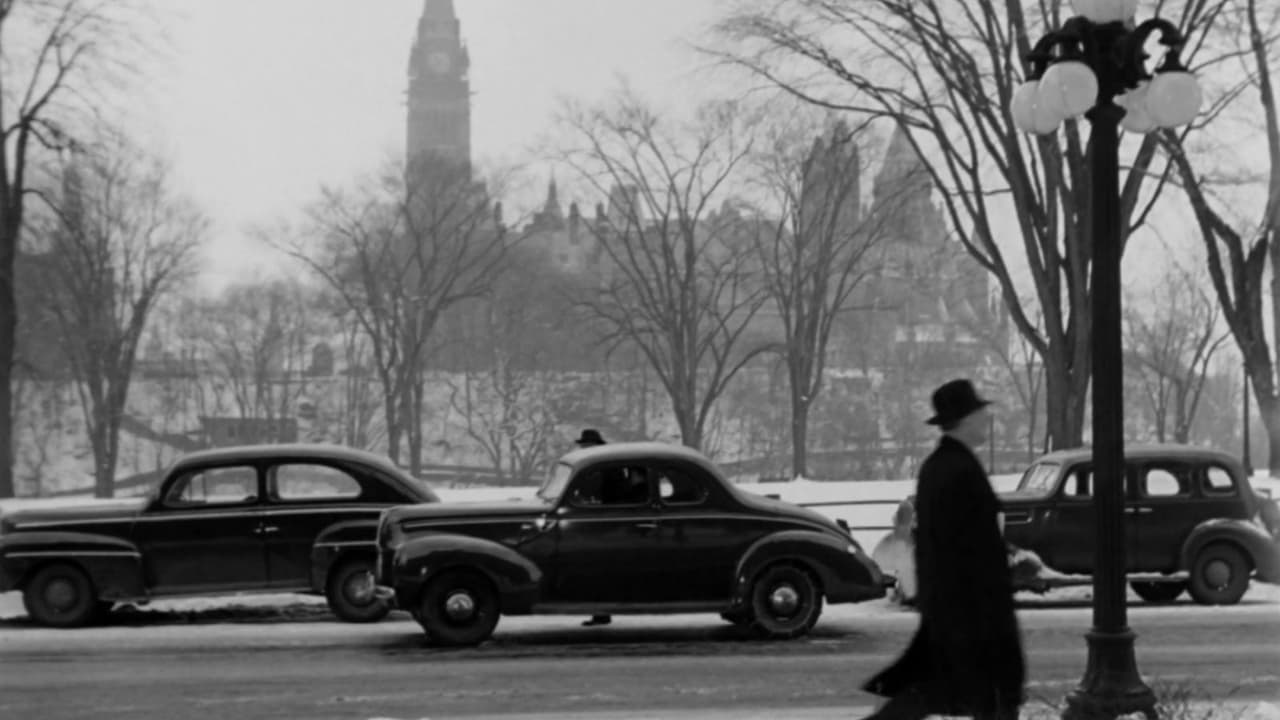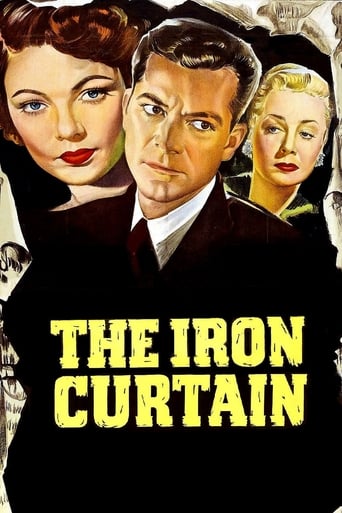Actuakers
One of my all time favorites.
FrogGlace
In other words,this film is a surreal ride.
ChanFamous
I wanted to like it more than I actually did... But much of the humor totally escaped me and I walked out only mildly impressed.
Joanna Mccarty
Amazing worth wacthing. So good. Biased but well made with many good points.
SimonJack
For all of the spy and espionage thrillers that have been made into movies, people today may be surprised to learn how old the American secret service is – or rather, how young it is. The CIA is the youngest of all the intelligence agencies of NATO nations. It wasn't formed until late 1947. Yet more movies since the last half of the 20th century have been made about or with CIA involvement in the stories than about any other intelligence organization or other government group. Right behind the CIA, with nearly as many movie numbers is the CIA's elder cousin, MI6 of Great Britain. Still, secret intelligence of the espionage type must have been an anathema to North Americans even through two world wars. That point springs from the details of the major Soviet Union espionage scandal that shocked Canada, the U.S. and the rest of the world in 1946. Even growing up during and after World War II, I don't recall ever having heard it being discussed or written about soon thereafter. I do recall watching a TV game show in the mid-1950s in which I first heard the name Gouzenko. But I didn't know about this movie until recent years."The Iron Curtain" was made in 1948. It is the true story, based on the actual events, that led to the world's discovery of the covert espionage activities of the Soviet Union. It was this discovery that some sources label as the beginning of the Cold War according to the Encyclopedia Britannica. Yet, it may never have been known for years or decades to come had it not been for one person – Igor Gouzenko. This movie is his story, from the time he arrived in Canada from Moscow in early 1943 until he defected in Ottawa on Sept. 5, 1945. Gouzenko was a cipher clerk who was loyal to the U.S.S.R. until that time. His wife had arrived from Moscow to join him and their first child was soon born. When he was due to be sent back to Moscow, he decided to defect and take secret espionage files with him. The movie shows how harrowing was his move because of the reluctance of Canadian government offices to believe him, or even to show interest. He even went to a major newspaper and was turned away. How he came to be successful almost seems like a fairy tale. But this is the story on film. Dana Andrews plays Gouzenko superbly. Gene Tierney is his wife, Anna (Svetlana). The supporting cast are all very good in the roles of the top Soviet embassy officials and Canadian Communist party spies. These included Col. Ilya Ranov, head of the Soviet Secret Police (later KGB); Col. Aleksandr Trigorin, chief Soviet military attache; Maj. Semyon Kulin, his deputy; John Grubb (aka "Paul") who established the Canadian Communist Party in 1920 and headed it's espionage activities. While the Soviet embassy officials couldn't be prosecuted, some 39 other civilians and military in government jobs were brought to trial, and 20 convicted of sentences from five years to life in prison. Gouzenko and his family were hidden and protected by the Royal Canadian Mounted Police and later were settled in a home with new identities in a Toronto suburb. He later wrote two books and appeared on TV shows with his head hooded to preserve his identity. He died in 1982 and Svetlana died in 2001. In 2003 Ottawa erected a memorial and in 2004 the Canadian government erected a memorial plaque. Some of the names and details in this film have been changed, but it mostly is an accurate portrayal of Gouzenko and his defection. The film appears dark and somber throughout. It was made in black and white and reflects the conditions under which Gouzenko worked and lived at the time. The movie was shot in the actual locales, and the prologue on the film states that all the documents in the film were the authentic items form the real event. While this film could hardly be considered entertaining, it surely is interesting. It provides a good look at the serious espionage activities of the world's largest Communist power and its threat to democracy and peace. On his arrival in Ottawa in 1943, Gouzenko was grilled by the Soviet Secret Police chief, to test his phony credentials. His opening statement is an example of the indoctrination that the Soviets put their own people through. It's a fitting way to end my comments. Gouzenko, "I am now in a foreign country and must always be alert against enemies. I must be careful of all manner of acquaintanceship. I must not engage in cordial conversation with any foreigner whatsoever. Never borrow money from a foreigner. In my apartment, I must be respectful to neighbors but make no friends. I must never permit myself to be more drunk than either my guests or my host. A sober brain, a firm tongue, and alertness. These things must always be with me when I'm with foreigners."
Edgar Soberon Torchia
Not a very good film, to be honest... For your pleasure it is a propaganda film, if you enjoy that or double standard. Due to its origin, it is full of "patriotic" speeches disguised as dialogues, exaltation of the American notion of democracy, dark portraits of Soviets' Western allies, warnings of the "Red Menace" that sound insolent when you see how light-heartedly the H-bombing of Japan is assumed, and so on... William Wellman directs all the tension-filled action with his usual skill, and actors are rather restrained in their Soviet portraits, but in the end not even the self-righteousness of the project can hide its true political agenda.
Neil Doyle
Fox was doing several spy documentaries in the '40s in the style of 13 RUE MADELEINE and THE HOUSE ON 92nd STREET, and this is one of their less melodramatic stories of espionage performed in low-key style by DANA ANDREWS and GENE TIERNEY.Andrews is Igor Gouzenko, a Russian who is part of a Canadian spy ring. He has a taste of freedom when he lives in Canada and decides to defect with his wife and young son, but not before taking classified documents with him which he intends to hand over to the authorities.Director William A. Wellman gets just a moderate amount of suspense out of the true life story, deciding not to go for melodramatics but having the whole story played out in low-key style befitting a documentary type of film. There's even some narration to frame the story.Andrews gives a decent performance, tight-lipped and determined to leave his Russian heritage behind and find freedom in Canada under the protection of the Royal Canadian police. Tierney gives one of her more sincere performances as the wife, concerned for the welfare of her child and his right to grow up under democracy's freedom.A bit too much propaganda but nicely photographed and played by a competent cast, including EDUARD FRANZ in a rather showier role. Lacks the dramatic power it might have had if a more melodramatic approach had been used.
edwagreen
Excellent film dealing with Soviet spies operating in Canada during World War 11 and afterward.The spying was done out of the Soviet embassy in Canada. There were plenty of non-Canadians involved in the spy ring as well.This film was a true story. Dana Andrews gives a subdued performance as a Soviet decoder who comes to appreciate democracy. He is soon joined in Canada by his wife who is played by Gene Tierney. She brings a simplicity to the role as the Soviet wife who also comes to respect a democratic way of life.There is an excellent performance by Eduard Franz, who plays an disenchanted alcoholic Soviet official, whose disdain for Soviet life will lead him back to the Soviet Union.The film is exciting since it shows how no one wanted to listen to Andrews unraveling of the spy ring.

